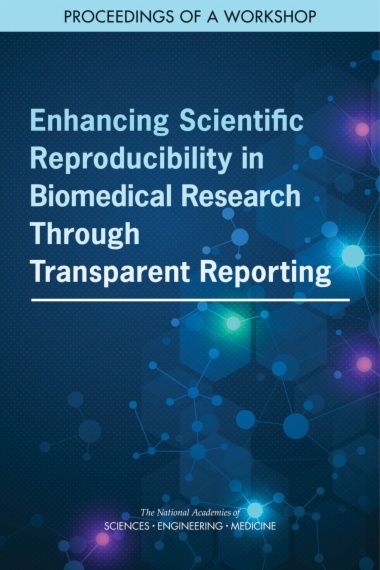

Sharing knowledge is what drives scientific progress - each new advance or innovation in biomedical research builds on previous observations. However, for experimental findings to be broadly accepted as credible by the scientific community, they must be verified by other researchers. An essential step is for researchers to report their findings in a manner that is understandable to others in the scientific community and provide sufficient information for others to validate the original results and build on them. In recent years, concern has been growing over a number of studies that have failed to replicate previous results and evidence from larger meta-analyses, which have pointed to the lack of reproducibility in biomedical research.
On September 25 and 26, 2019, the National Academies of Science, Engineering, and Medicine hosted a public workshop in Washington, DC, to discuss the current state of transparency in the reporting of preclinical biomedical research and to explore opportunities for harmonizing reporting guidelines across journals and funding agencies. Convened jointly by the Forum on Drug Discovery, Development, and Translation; the Forum on Neuroscience and Nervous System Disorders; the National Cancer Policy Forum; and the Roundtable on Genomics and Precision Health, the workshop primarily focused on transparent reporting in preclinical research, but also considered lessons learned and best practices from clinical research reporting. This publication summarizes the presentation and discussion of the workshop.